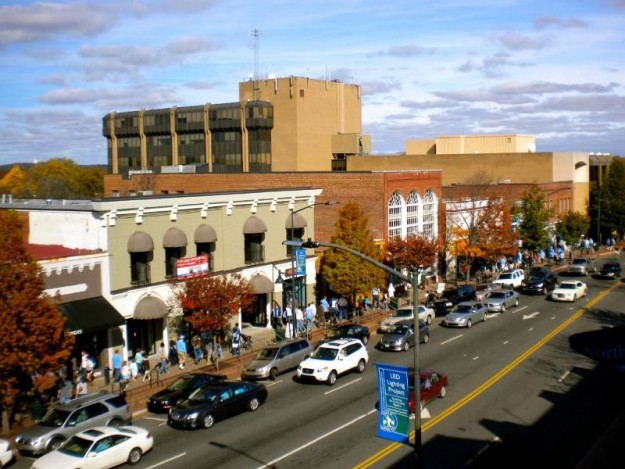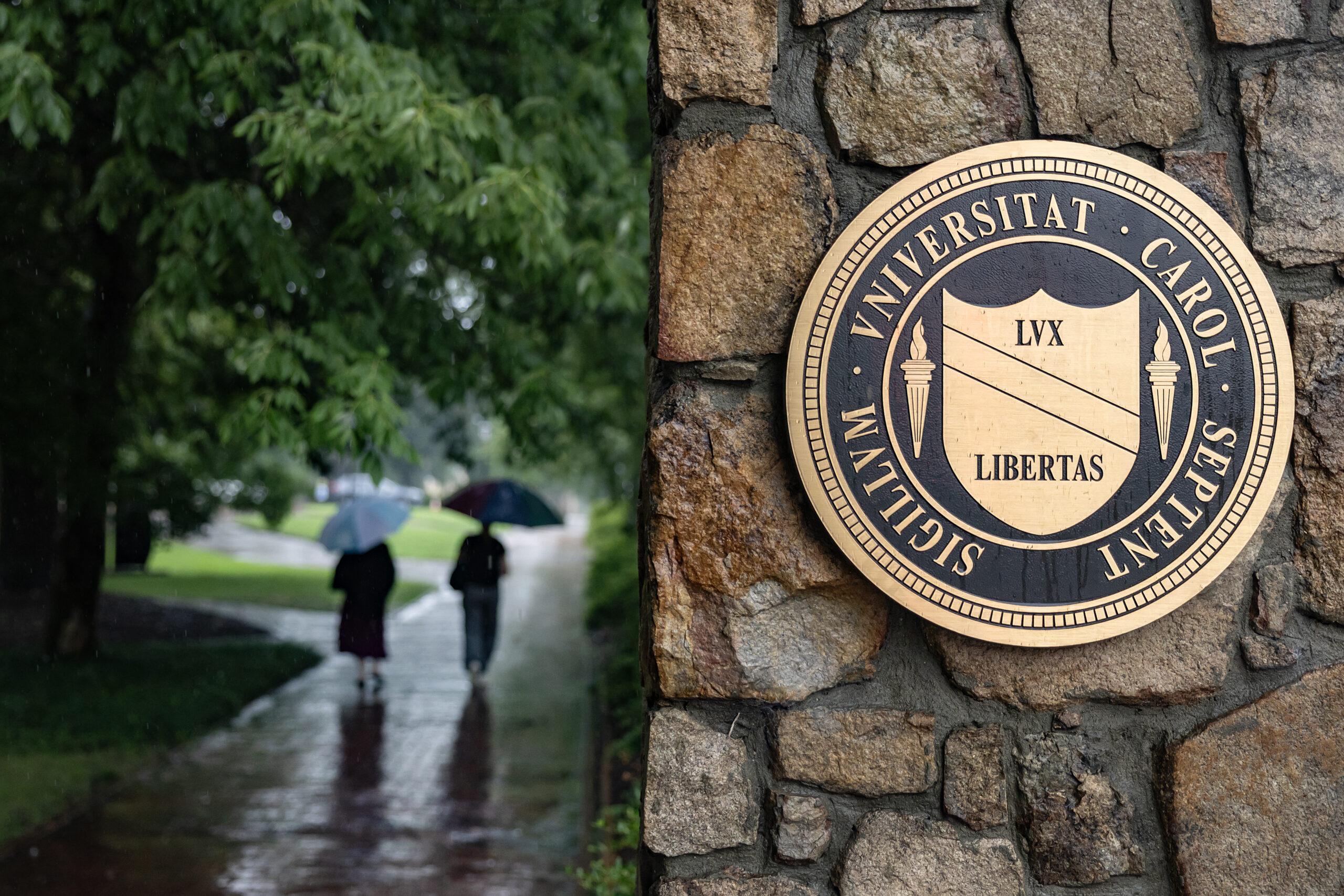An advocacy group that also serves as a training vehicle for law students at UNC-Chapel Hill may come screeching to a halt by order of university system officials.
That group is the UNC Center for Civil Rights, whose mission was summarized in comments made by Director Ted Shaw to the Chapel Hill Town Council on Monday.
“Since 2001, it has represented black, brown, poor people in North Carolina with respect to issues of racial justice, economic equity, and it does work that, I think, serves the state and the country,” he affirmed.
The center fulfills a dual purpose of providing legal representation for minority groups while giving law students an opportunity to gain experience with actual litigation.
That litigation has caused the UNC Board of Governors to ask whether an enclave of lawyers in the university system should be allowed to try cases in official capacity.
“The BOG is attempting to stop the center from litigating, and that would effectively mean it would gut the center,” explained Shaw.
Council members also heard from managing attorney Mark Dorosin on the extent to which the center focuses on issues that concern residents of Chapel Hill.
“The center, for a long time, has represented the Rogers-Eubanks Neighborhood Association in their struggles for environmental justice,” he noted. “We’ve also worked extensively with the Jackson Center, the RENA Center, with EmPowerment on issues related to housing, making sure people have access to wills so people can preserve the land that they have — so we certainly have a local aspect.”
According to Dorosin, those issues are addressed by lawyers at the center who receive no financial assistance or compensation from the state government.
“We get no state money at the UNC Center for Civil Rights,” he emphasized. “All of the money that we use has to be raised privately from foundations, from grants, and from individual supporters.”
Despite the fiscal independence of the center, Steve Long of the UNC Board of Governors maintains that “suing the state and its municipalities violates the mission of the university.”
Lawsuits involving those entities were filed three years ago by the center when it represented the plaintiffs in Everett v. Pitt County Board of Education.
The type of representation provided by the center led Chapel Hill Mayor Pam Hemminger to applaud its intentions, regardless of the politics that surround it.
“We are very supportive of making sure that everyone is represented well and has access to good representation,” she stated. “We appreciate the work you do; we know it’s hard, but we’re glad you’re fighting the good fight.”
The Chapel Hill Town Council voted unanimously to affirm its support for the UNC Center for Civil Rights ahead of a comment session scheduled for this Thursday.
The session is open to the public and will take place at the UNC Center for School Leadership Development on Friday Center Drive from 11:00 AM to 1:00 PM.
Photo by Dan Sears/UNC.
Related Stories
‹
![]()
Vote (Likely) Set For August 1 On UNC Center For Civil RightsThe fate of the UNC Center for Civil Rights could be decided on Tuesday, August 1 - if the Board of Governors waits that long.
![]()
First Victory for New Julius L. Chambers Center for Civil RightsThe predominately black community of Walnut Tree in Stokes County was annexed into the Town of Walnut Cove last month after a lawsuit alleging racial discrimination. The case was handled by the new Julius L. Chambers Center for Civil Rights, the non-profit legal center started by Mark Dorosin, who was fired from the UNC Center […]
![]()
Advocates Worry New UNC System Policy Could 'Chill' Free SpeechThe UNC Board of Governors passed a controversial new free speech policy earlier this month that could lead to punishment for those who protest at public universities. The board unanimously passed the policy after being required by the state legislature to address the issue, despite already having free speech policies in place at constituent institutions. […]
![]()
After Early Firing, UNC Center for Civil Rights Attorneys Looking To New ProjectAs of last Thursday, managing attorney for the UNC Center for Civil Rights Mark Dorosin and his colleague Elizabeth Haddix were relieved of their positions by the university. This move came ahead of schedule, as the two were expecting to maintain their positions until January 12, but after a letter from the State Bar claimed […]
![]()
Attorneys Working to Continue Work of UNC Center for Civil RightsThe future of the UNC Center for Civil Rights remains uncertain after its power to act in litigation was stripped by the UNC System Board of Governors earlier this fall. Mark Dorosin, the center’s managing attorney, was effectively relieved of his position in the move. He technically will maintain that post until January 12. “In […]

Officials Unsure Sanctuary City Bill Impact LocallyNorth Carolina operates under a law that prohibits any county or municipality from restricting local law enforcement’s ability to cooperate with federal immigration officials. Therefore, there are no technical sanctuary cities in the state. However, that hasn’t stopped different local law enforcement from choosing what to prioritize in their respective towns. But now multiple proposals […]
![]()
Secrecy Surrounding Chancellor Raises Draws CriticismThe UNC Board of Governors decided in closed session on Friday to give pay raises to several chancellors across the UNC System. Now that information is finally being made public. UNC Chancellor Carol Folt and NC State Chancellor Randy Woodson were two of 12 recipients of a pay increase, according to information released on Monday. […]
![]()
It’s "Political" Science!Elections are big deals in political science and there’s nothing that political scientist love more than using elections to test their theories. Thinking about this primary season that we are now in however, reminds me more of natural science. I’ll leave the scientific explanations to my colleague Jeff Danner, but I can’t help but see […]

Local Higher Ed Leaders Discuss Adjusting to Workforce 'Uncertainties' Created by Artificial IntelligenceArtificial intelligence was a common thread through 97.9 The Hill's Forum On The Hill panels with local collegiate leaders, as they discussed how to best marry the traditional role of education with preparing college students to potentially be met with AI as they enter the workforce.

Staff Share Concerns for Upcoming UNC Initiative Aiming to Streamline Operational EfficienciesAs UNC nears the end of the fall semester, its employees are voicing concerns about its upcoming ServiceFirst initiative.
›




